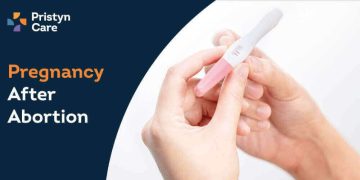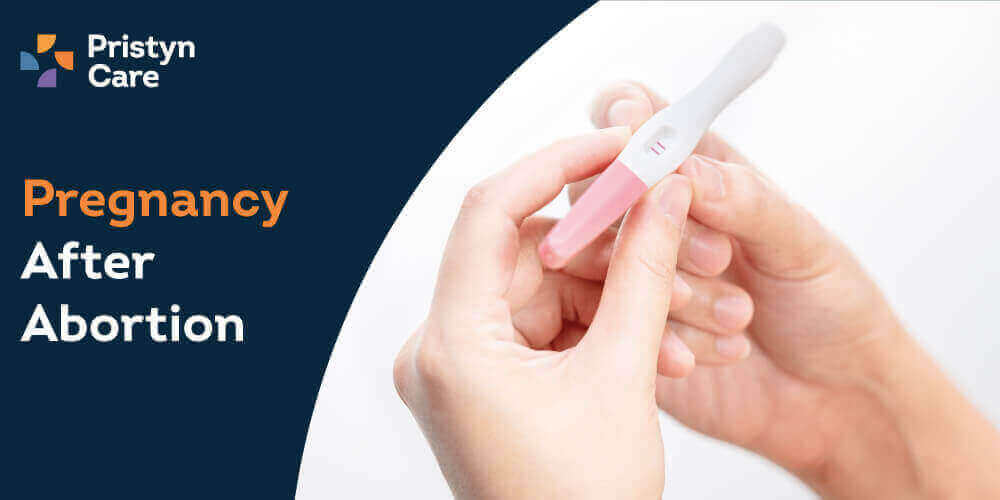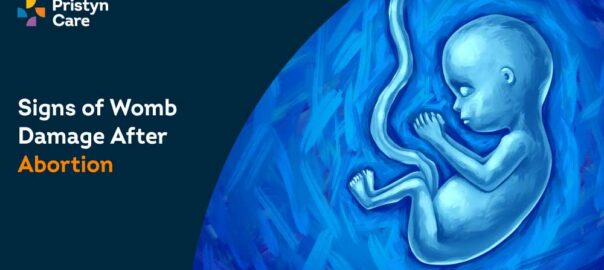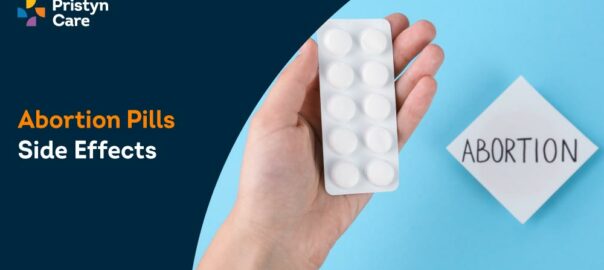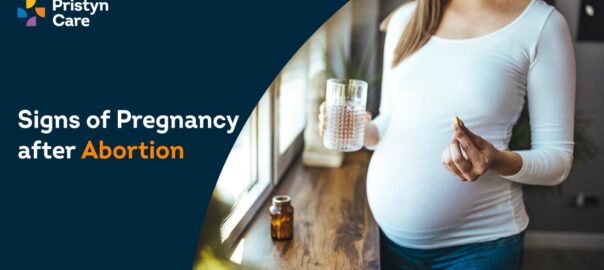![]() Views: 816
Views: 816
Pregnancy after Abortion
But if there were complications or medical reasons for your abortion, you might need a comprehensive evaluation before attempting conception again. An often-asked question is 'after how many months of abortion pregnancy is possible?' The answer to this question is that it varies from person to person but generally, it's safe for a pregnancy after abortion if you have fully healed physically and emotionally.
Dedicated Support at Every Step!
Our Doctors are available 24 hours a day, 7 days a week to help you!
Call Us0806-541-7961Table of Contents
Is pregnancy possible after abortion?
Pregnancy after abortion, either surgical or medical, is indeed a possibility. When a woman can conceive again depends on several factors like the kind of abortion she had, her health and fertility, and the use of contraceptives. In general terms, as an answer to the question, 'After how many months of abortion pregnancy is possible?'
It is possible to conceive within a fortnight after undergoing a medical abortion. The female body may initiate ovulation a few weeks post-procedure, but it is critical to hold off until the doctor allows resuming sexual activity to minimize infection risks. Additionally, using effective birth control methods is vital in preventing an unplanned pregnancy after an abortion.
It is pertinent to know that pregnancy after abortion is typically not significantly affected by the procedure itself. However, there does exist a minor risk of complications like scarring of the uterine wall or damage to the cervix, which could render pregnancy after abortion more challenging. In rare circumstances, an infection in the womb can occur, although this is extremely rare and necessitates timely treatment.
It is noteworthy that pregnancy tests may still show positive results several weeks after an abortion due to lingering levels of the hormone human chorionic gonadotropin (hCG) in the body. A blood test or ultrasound is recommended to determine whether the positive result is due to a new pregnancy or leftover hCG from the previous pregnancy.
No Cost EMI, Hassle-free Insurance Approval
How Soon After an Abortion Can You Get Pregnant?
After an abortion, your body starts recovering quickly and you may be surprised to learn that you can get pregnant again as soon as two weeks later. Ovulation can occur quickly, sometimes even before your next period. This means that before your first menstrual cycle, there is a possibility of pregnancy after abortion.
However, there are a few factors that impact this timeframe:
- Type of Abortion: Medical abortions might shorten the gap as ovulation may happen sooner than after surgical procedures.
- Stage of Pregnancy: Abortions carried out later in pregnancy could delay ovulation for several weeks.
- Length of Menstrual Cycle: Women with shorter cycles might experience ovulation and fertility sooner.
Do Abortions Increase the Risk of Future Pregnancy Complications?
Women who undergo an abortion are often concerned about their future pregnancies. Here is what current medical knowledge suggests:
- Immediate Risks of Abortion: When carried out by proficient doctors in a secure environment, the immediate risks associated with abortion, such as infection, bleeding, or damage to the uterus are significantly low.
- Impact on Future Pregnancies: According to several comprehensive studies, a single, uncomplicated abortion doesn't largely increase the risks of future infertility, ectopic pregnancy, miscarriage, or preterm birth.
- Repeated Abortions: However, having multiple abortions (particularly four or more) can slightly elevate the risk of preterm birth and low birth weight for subsequent pregnancies. This is believed to be due to possible harm to the cervix or uterus from repeated dilation and curettage procedures.
- Psychological Impact: While this isn't directly related to physical risks, some individuals might undergo psychological distress post-abortion. The extent of this distress can vary considerably.
- Individual Factors: Various other elements like underlying health conditions, age, smoking habits, and reproductive history also have an impact on pregnancy after abortion outcomes.
Health Checks Before Trying for Pregnancy After Abortion
Before trying to conceive again after a surgical abortion, it is advised you consider several health checks to ensure a healthy pregnancy. These checks can detect any potential issues that could impact your fertility or pregnancy after abortion. Here are some essential health checks:
- Preconception Checkup: This form of checkup with a healthcare provider ensures you are ready and healthy for pregnancy after abortion. They may check your vaccination status, screen for sexually transmitted infections, assess heart health, manage any chronic conditions, and discuss medications that could affect fertility or pregnancy.
- Genetic Tests: Depending on your family history or ethnicity, your doctor may recommend genetic tests for conditions like cystic fibrosis, sickle cell disease, Tay-Sachs disease, or other genetic disorders to assess any risk of passing these conditions to your baby.
- Lifestyle Changes: It is recommended to quit smoking, limit alcohol consumption, and stay away from harmful substances like street drugs. These habits could impact fertility and harm the baby during pregnancy after abortion.
- Weight Management: Achieving a healthy weight before pregnancy is crucial as being underweight or overweight can affect fertility and raise the risk of pregnancy complications like gestational diabetes and high blood pressure.
- Folic Acid Supplementation: Taking folic acid daily can prevent birth defects of the brain and spine in the baby. Most women need 400 micrograms of folic acid daily, which is typically found in prenatal vitamins and can be taken during pre-pregnancy care.
- Vaccinations: Keeping up-to-date with vaccinations like rubella, chickenpox and hepatitis B is important before pregnancy. Vaccines like MMR and varicella should be administered at least 28 days before trying to conceive to reduce the risk of birth defects.
Always remember to discuss any financial concerns with your healthcare provider. They may offer suggestions for cost-effective testing options or plans, making it easier for you to manage your healthcare budget while ensuring optimal care for your pregnancy after abortion.
FAQs
- How long does the recovery process take after an abortion before trying for pregnancy?
A: The recovery period may differ from person to person. Usually, it takes about 2-4 weeks for your body to heal physically from an abortion. However, it's best to wait until you have at least one normal menstrual cycle before trying to conceive again. This allows your body to fully recover and ensures a healthy environment for the pregnancy after abortion.
- Does insurance cover the cost of an abortion procedure?
A: In India, insurance coverage for surgical abortion or medical abortion is not as widespread as it should ideally be. Many insurance policies do not cover the cost of an abortion unless it is medically necessary for the woman's health. It is recommended to check with your specific insurance provider before proceeding with any medical procedures.
- What are the potential side effects of an abortion?
A: A surgical abortion or medical abortion can have some short-term side effects, including spotting or bleeding, cramping, nausea or vomiting. In rare cases, long-term complications can include fertility issues or emotional distress. However, most women do not experience severe complications and can have a successful pregnancy after abortion.
- What is the success rate of pregnancy after an abortion?
A: Most women who have had an abortion can still have a successful pregnancy after abortion. Having one or even two abortions does not affect a woman’s ability to get pregnant or have a healthy pregnancy in the future. As long as there are no complications during the abortion, and adequate pre-pregnancy care is taken, the chances of a successful subsequent pregnancy after abortion are quite high.
- How can I increase my chances of a healthy pregnancy after an abortion?
Maintaining a healthy lifestyle is key. This includes eating a balanced diet, maintaining a healthy weight, exercising regularly, avoiding alcohol and tobacco, and taking prenatal vitamins with folic acid for a healthy pregnancy after abortion.
- What are the causes of complications in pregnancy following an abortion?
Complications can arise if an infection develops after an abortion or if there is damage to the uterus during the procedure. Additionally, emotional stress following an abortion can also lead to complications in a subsequent pregnancy. It's essential to follow all post-operative care instructions and maintain regular check-ups with your doctor to prevent such issues and have a complication-free pregnancy after abortion.
- How can I cope with the fear of another abortion during a subsequent pregnancy?
The fear of another abortion can be overwhelming for some women. It's important to remember that each pregnancy is unique and just because one ended in an abortion doesn’t mean the next one will as well. Seeking help from supportive friends, family, or a professional therapist can also be beneficial in pregnancy after abortion.
References
1) https://www.healthline.com/health/womens-health/pregnancy-after-abortion
2) https://www.parents.com/pregnancy/my-body/pregnancy-health/pregnancy-after-abortion/
3) https://www.msichoices.org.uk/news/when-to-take-a-pregnancy-test-after-an-abortion/



